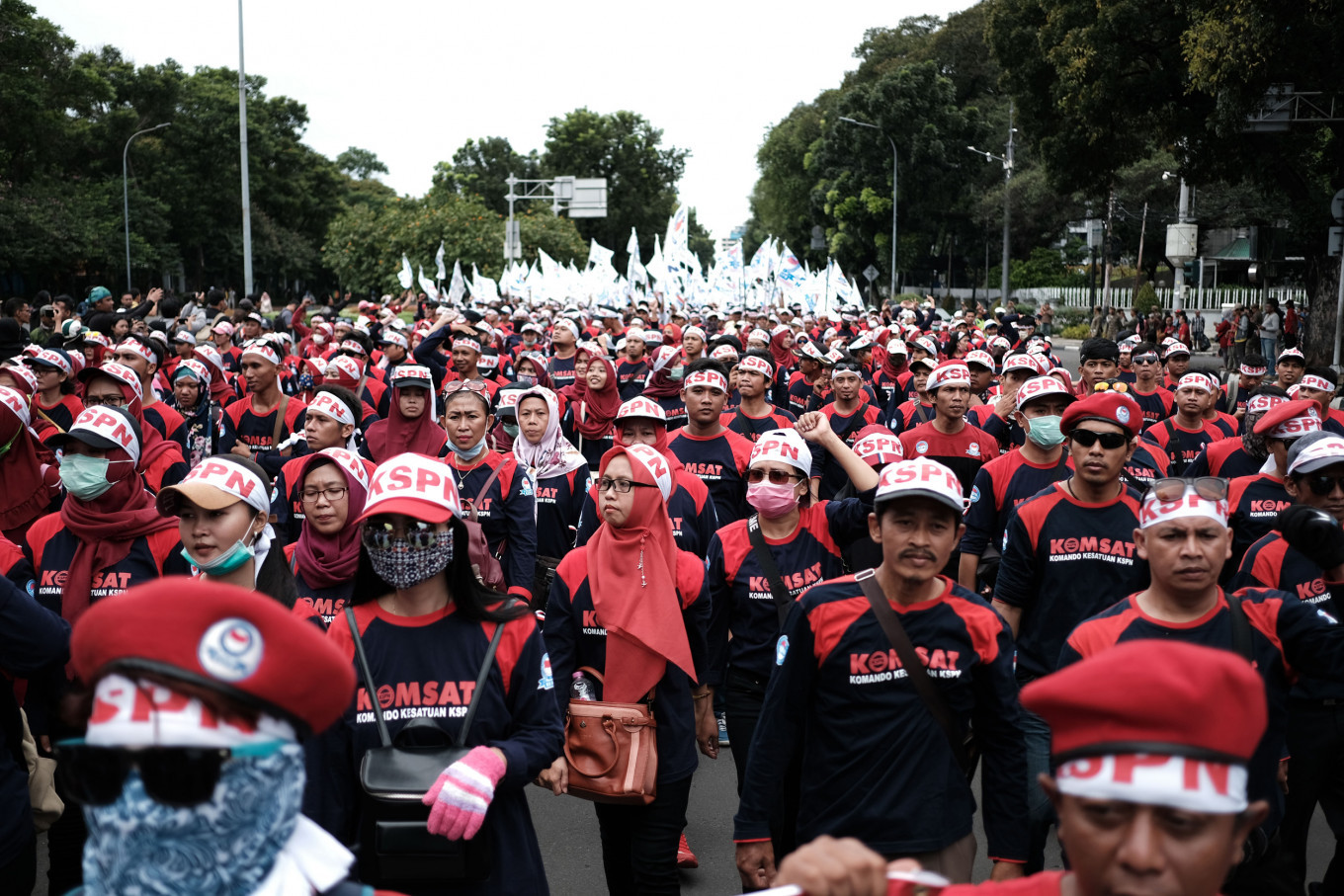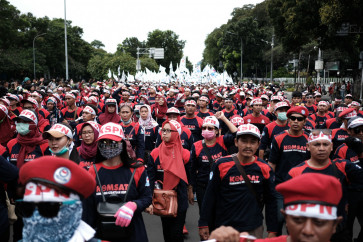Popular Reads
Top Results
Can't find what you're looking for?
View all search resultsPopular Reads
Top Results
Can't find what you're looking for?
View all search resultsWorkers wrestle with Labor Law, skills gap, automation
The business community considers the 2003 Labor Law and its derivatives to be one of the factors dragging down the country’s competitiveness, as high severance pay requirements and high wage requirements have discouraged labor-intensive, smaller enterprises from investing in the country.
Change text size
Gift Premium Articles
to Anyone
A
s President Joko “Jokowi” Widodo focuses his administration’s agenda on human resources and talent development, issues that are presenting themselves as major challenges are the 2003 Labor Law revision, shortage of skilled workers and the rise of automated jobs.
The business community considers the 2003 Labor Law and its derivatives to be one of the factors dragging down the country’s competitiveness, as high severance pay requirements and high wage requirements have discouraged labor-intensive, smaller enterprises from investing in the country.
One example is the South Korean Garment Entrepreneurs Association in Indonesia chairman, Ahn Chang Sub, among businesspeople who have lamented the drastic minimum wage increases over the years in West Java.
Last year, an estimated 21 companies planned to relocate their factories from Karawang, West Java, to other regions on account of the 2019 minimum wage increase.
But he may not be the only one. Around 160 South Korean-owned textile companies employing around 250,000 people are currently “confused” as to what to do in the face of a provincial minimum wage increase in 2020, Ahn claimed.
“Wages have increased by 3.5 times in seven years but productivity hasn’t followed suit [...] South Korean textile entrepreneurs will be unable to survive in West Java [if this continues],” Ahn said last month.
Meanwhile, Indonesia’s severance pay requirement, equal 32 to 36 months of an employee’s salary, is still among the highest in the region, prominent businessman Sofjan Wanandi said in August.


















